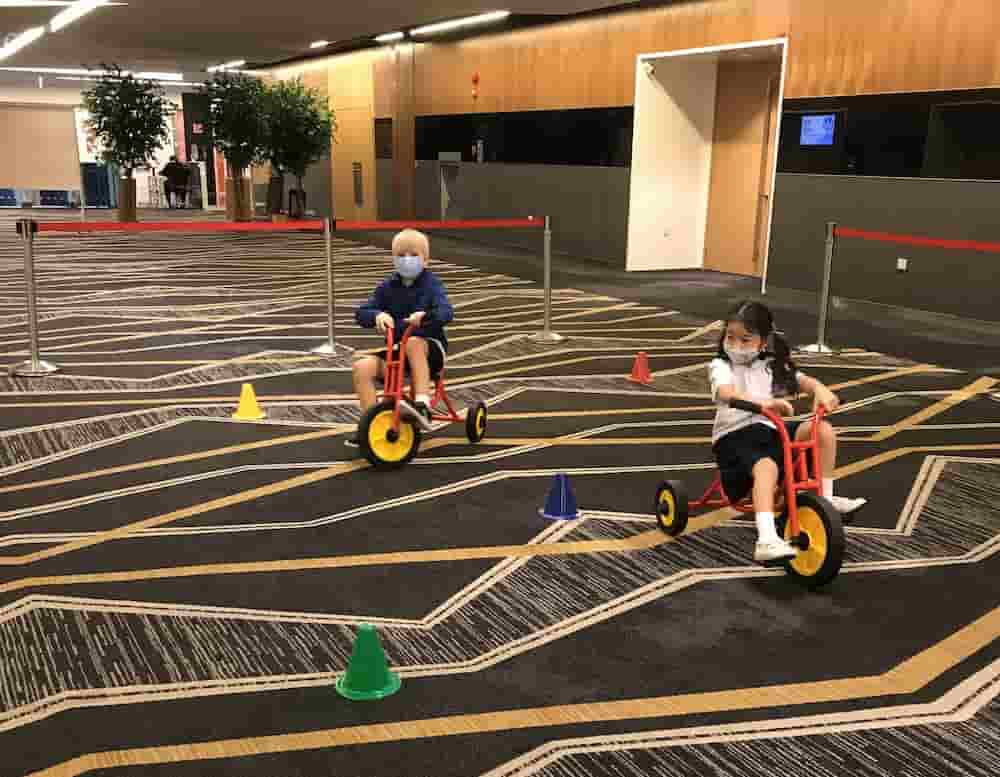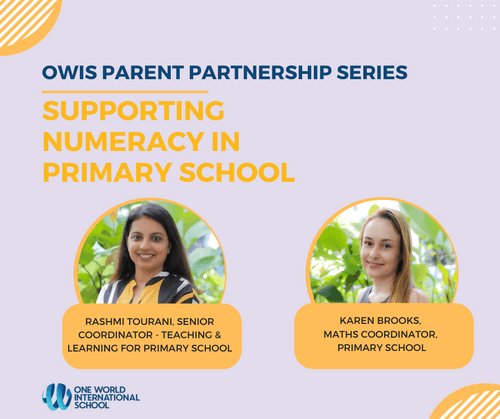Preschools and kindergartens are intended to help young children learn and grow intellectually, socially, physically and emotionally. But did you know that for young children, playing is learning? A child-focussed play-based preschool in Singapore, like our Early Years Programme at OWIS Suntec, can help your little one to learn through play independently and also in groups, both of which will have significant benefits.
One important distinction between play-based learning and programmes that emphasise traditional academics is: Who directs the learning? In academically orientated programmes, teachers provide information to children. In contrast, in inquiry-led, play-based programmes, the child initiates their learning using their natural curiosity and initiative in an environment that experienced teachers design.
At our new Suntec campus, our Early Childhood curriculum is designed around play-based learning, giving young children many opportunities to grow holistically in a natural manner. Here are some of the benefits of this approach.
What are the Benefits of Play-Based Learning?

- Engagement in learning: Our excellent preschool teachers carefully plan children’s days, including varied play opportunities that engage children throughout the day and over the school term. By stimulating their interest and curiosity, play-based learning allows children to advance their knowledge and skills without even realising it.
- Independent learning: When activities are overly planned and directed, children may lose enthusiasm for learning on their own. Well-designed play-based learning programmes encourage children to learn independently and use their imagination while gaining social skills.
- Boosts creativity: When children engage in imaginative play, their social skills, vocabulary and imagination thrive. Having the opportunity to play creatively could spark a young child’s lifelong interest. For example, a child who builds imaginary castles may develop a later interest in architecture, building or history.
- Learning by doing: Many educators have observed, and studies confirm, that children learn best by doing. This is also known as hands-on learning. For example, playing with mixing bowls and measuring tools teaches many concepts and skills while the child is having fun. Sensory play is another wonderful way through which children build their neural connections and understanding.
- Expand language skills: Social and group play through role play spaces and drama activities help children build their vocabularies in a much stronger way than rote memorisation. Pretend play is one great example of this. Not only is this form of play fun, but by acting as a doctor, fireman or chef, young learners pick up the vocabulary and the ideas behind these professions.
- Enjoying the unfamiliar: Every new concept is fun when there is a game or some fun activity around it. Take for instance, learning another language. OWIS offers Mandarin in the Early Years Programme and this follows a similar play-based approach. It’s easier for the child to build communication skills in a new language when the activity is engaging and exciting or game-based.
- People skills and etiquette: Early childhood education is about learning how to get along with and work well with others. Play-based learning naturally helps children practice essential skills, including listening, taking turns and sharing with others.
- Independent problem-solving: We all want our children to gain confidence in solving problems and overcoming challenges. The early childhood years are a time when children can learn how to solve problems on their own. One of the best ways for them to accomplish this is by playing with other children and working out problems without a lot of unnecessary adult direction. One hallmark of an excellent early childhood educator is the ability to let children work through their group and social play on their own, intervening only when needed to offer guidance and support.
OWIS Suntec Offers Ample Opportunities For Play-Based Learning

Because play-based learning is so crucial for the development of young children, OWIS Suntec has created the optimal environment for play-based education for our preschool grades in Singapore. In addition to discovery zones that have toys, building blocks and other manipulatives that support each child’s interests, OWIS Suntec has also developed play-based activities that are integrated into subjects like Maths, English and Mandarin. Our youngest learners can also safely play active games, such as hopscotch, outdoors in the Sky Garden at OWIS Suntec, under the supervision of our experienced teachers.
Learn how your 3 to 6 year old child will benefit from early childhood education at OWIS Suntec through our virtual open house. We look forward to seeing you there!
This blog was originally written in collaboration with Mark Renie, former Head of School, OWIS Nanyang and Suntec.














